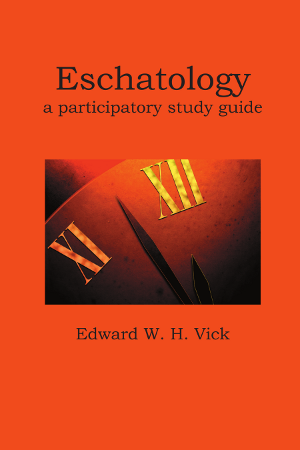Eschatology: Daniel Passage-by-Passage
I’ll be looking at chapters 6 & 7 tonight, though 7 will doubtless stay in focus as we go through 8 & 9.
YouTube:
I’ll be looking at chapters 6 & 7 tonight, though 7 will doubtless stay in focus as we go through 8 & 9.
YouTube:

Nearly 20 years ago a waitress at a well-known breakfast chain messed up my order for hash browns by adding diced ham. If you don’t find anything odd about that sentence, you are, perhaps, a candidate for counseling. But I digress. I had wanted jalapeños, onions, mushrooms, and cheese. I got all of those. Plus…
In some recent discussions, mostly related to my Seventh-day Adventist background (for those who may not know, I’m now a member of a United Methodist congregation but was raised SDA), I have encountered quite a number of questions regarding who various elements of scripture are for. For example, many Christians will say that the law…
. . . has been posted. There’s a link to one of mine and there are also links to many very substantive posts which is what I go to this particular carnival to find. As I have time after this weekend of the John Webb Winter Golf Tournament, I will try to link to some…
Note: I’m going to be running two series here in parallel over the next few weeks, one on the methods of Biblical criticism and how a layperson can apply them, and the other on views of God as the creator. I’m pretty well known to be a theistic evolutionist, but at the same time, I…

I grew up in the Seventh-day Adventist Church, which is very interested in eschatology. We didn’t learn the term all that early, but we were subjected constantly to sermons about it. SDA eschatology is one of the key reasons I’m not SDA any more, but when I first joined a United Methodist congregation, I was…

Wisdom cries aloud in the open air,and raises her voice in public places.21 She calls at the top of the bustling streets;at the approaches to the city gates she says:22 ‘How long will you simple fools be content with your simplicity? The Revised English Bible (Cambridge; New York; Melbourne; Madrid; Cape Town; Singapore; São Paulo;…
It occurred to me when listening to the repeated “according to the law of the Medes and Persians no decree or edict that the king issues can be changed” firstly that the law of the Medes and Persians is therefore hugely stupid (any student of law will quickly find that past precedents are a millstone round your neck when trying to find a just result) and secondly that the author may have expected his audience to pick up on that. It rather depends whether the authorship is before or after the advent of a tradition of picking away at the Mosaic Law and its interpreters among Jewish scholars (later they’d be universally called Rabbis, but maybe not at this date…)
It’s an interesting point, especially since I’m trying to look at the book from the perspective of two proposed times of writing and many possible redactional processes. I do believe that the king (Darius the Mede, unknown to history) is being portrayed negatively, but you may be right that the legal system is also receiving a similar portrayal. It would seem likely that such a commentary would be more likely with later dating, though it would fit with the Aramaic portions of the book coming from anywhere from the 5th to the 2nd century as the rabbinic laws are discussed and codified, though probably later in that period than earlier.